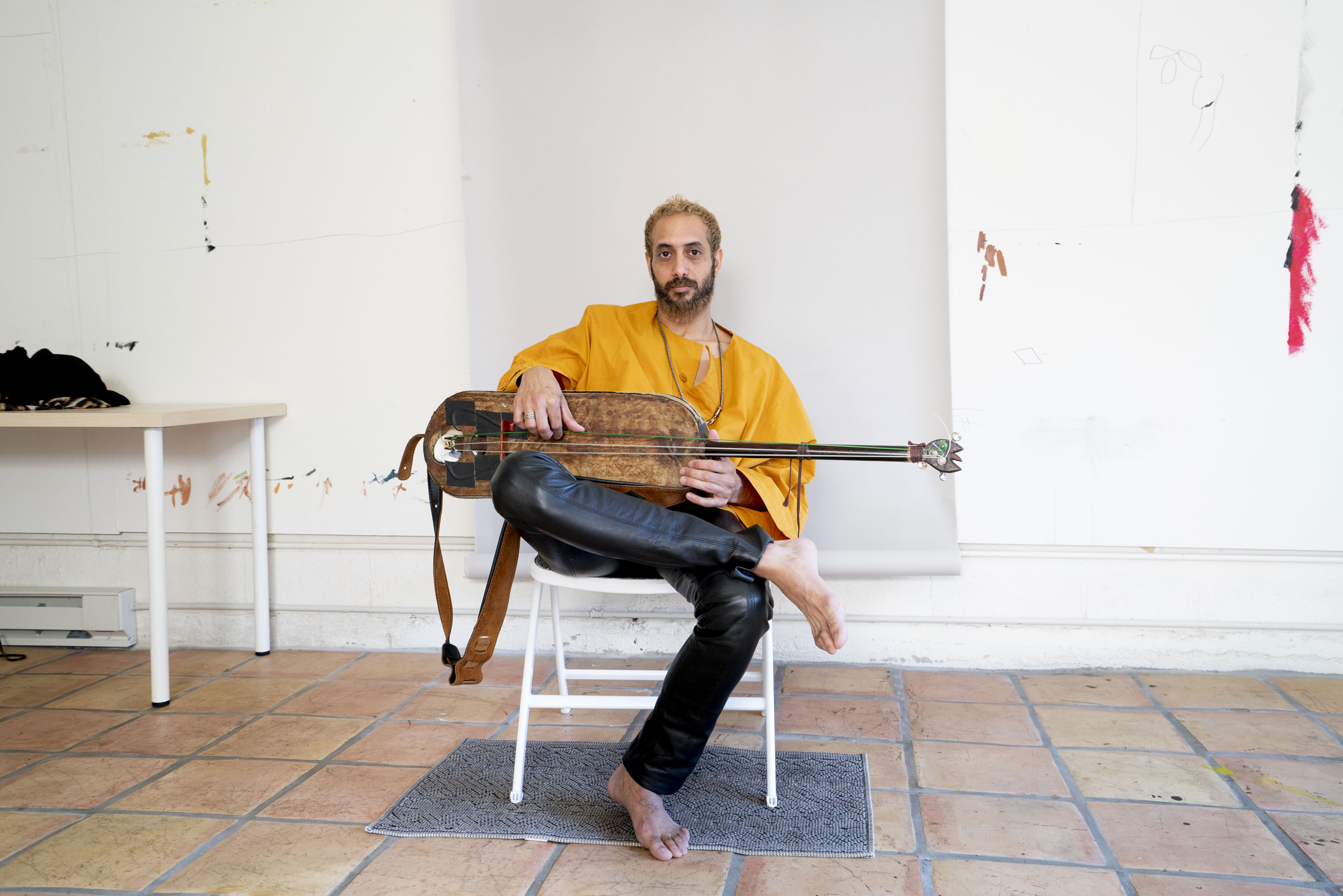Based in Berkeley, The Peleh Residency is one of the few fully-supported, specifically family-friendly residencies in the country, and it emerged from the vision of the Peleh Fund to support both the creative process, and a new kind of cultural infrastructure that honors a commitment to family and work. The program reflects two core beliefs of its founders. First, that the universal experience of caregiving and working must be acknowledged and supported by our institutions if we are to thrive as a community. And second, that art and culture have the power to cross boundaries between people and ideas, bringing historical identity into modern life in new ways.
This post continues our series of reflections from artists who were part of the residency and how this focus on art, family, and caregiving has impacted their lives and work.
The residency was the first time I was able to be supported completely for who I am, for my whole self as a person and a musician. It’s so critical, given what is happening in the world and how artists are struggling, to support artists on the personal level. It’s very important for artists to have this kind of experience, to feel free to learn his rhythm, to learn about his place in the word, without always having to chase after the next song, the next goal.
During the residency I wrote two songs. Usually I write much more than that, but this time those two songs came from a special place. I was free from all the other commitments, which let me take care of myself, and then I could create some music from a deeper and more peaceful place.
The first song I wrote was about Yemen, a dreamy song about the country my parents came from, and how I wanted to send good energy there, given the conflict.
The second song I wrote was about relationships. I recorded it with Chris Houston, my neighbor in the adjoining house on Prince Street.
So much of what was amazing about the residency was the relationships. For instance, Chris. To have this amazing musician next door, who was so welcoming and had such good, calm energy, helped me get connected to my surroundings very fast.
Most importantly was the relationships I developed with the family. They might have been the biggest inspiration, to see their supportive energy between each other, and to see how they connected creating art and music with being a nicer human being. I was so happy during my concert at the Freight and Salvage to bring Penina up on stage to open the show for us. And to have the chance to have this public conversation with Jane [about Yemen and music and connecting art and social responsibility] was incredible. She was 100 percent present always, and helped me understand how music and art and family are all connected.
Maybe the most important thing that happened because of the residency was the change in my relationship with family. Afterwards, I got back together with my girlfriend. And I thought more about my relationship with my daughter. I saw how [Jane’s family] was there for each other, and I wanted to be there for my daughter in a different way. I wanted to bring [Jane family] energy into my relationship with my daughter.
This was an experience I will take with me for the rest of my life.


